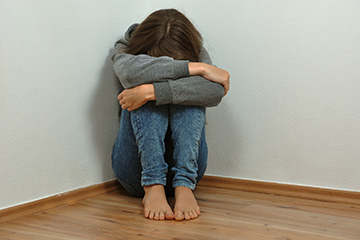Human Trafficking
What's human trafficking?
Simply put, it’s the illegal trade of human beings. People are recruited, controlled and used for their bodies and labour. Similar to slavery, traffickers use force, fraud and coercion to buy and sell people against their will.
As reported over the past few years, South Africa is a source, transit, and destination country for men, women, and children subjected to forced labour and sex trafficking. South African children are recruited from poor, rural areas to urban areas, such as Johannesburg, Cape Town, Durban, and Bloemfontein, where they're subjected to sex trafficking and domestic servitude as well as forced to work in street vending, food service, begging, criminal activities, and agriculture. Many children, including those with disabilities, are exploited in forced begging. A non-consensual and illegal form of ukuthwala, a traditionally forced abduction of women for marriage, has also been practiced in some remote villages in the Eastern Cape Province.
 Types of trafficking
Types of trafficking
- Sex trafficking: Forcing, deceiving, or coercing a person to perform sexual acts for money.
- Forced labour: Forcing a person to work in captivity for little or no pay.
- Bonded labour: Forcing a person to work for low wages to pay back an impossible debt.
- Involuntary domestic servitude: Forcing a person to work and live in the same place for little or no pay.
- Child soldiers: Forcing a child to participate in an armed force.
- Organ trafficking: Kidnapping a person, removing organs from their bodies and selling the organs on the black market.
How people are trafficked
According to A21 (a non-profit organisation that calls itself, the Abolitionists of the 21st century), Traffickers use different methods to recruit victims. These are just some of the ways their survivors were trafficked:
- False job advertisement
- Sold by family
- Loverboy (Where the trafficker makes a girl fall in love with him.)
- Abduction
- Trafficked by a "friend"
- False immigration
- Other
Signs to look out for:
- Controlled by another person:
They’re accompanied by a controlling person and don’t speak on their own behalf, but instead defer to another person. - Controlled movement:
They’re transported to or from work, or live and work at the same place. They show signs that their movements are being controlled. - Lack of earnings:
They’re unable to keep their earnings: it’s “withheld for safekeeping.” In many cases, the person owes a debt they’re working to pay off. - Foreign, unfamiliar with the language:
They have recently arrived in the country and don’t speak the language of the country - or they only know sex-related or labour-related words. - Overly fearful, depressed and submissive behaviour:
They’re scared to talk to outsiders and authorities since they are closely monitored and controlled by their trafficker(s). They may be fearful, anxious, depressed, overly submissive, and may avoid eye contact. - Signs of physical abuse:
They may have bruises, scars, and other signs of physical abuse and torture. Victims of human trafficking are often beaten in areas that will not damage their appearance, such as their lower back. - Substance abuse:
They may show signs of drug use or drug addiction. A victim of trafficking can be forced or coerced into drug use by their traffickers, or they turn to substance abuse to help cope with the enslavement. - Lack of trust:
They may be distrustful and suspicious. A victim of human trafficking may act as if they distrust any person who offers them assistance or attempts to converse with them. - Lack of personal belongings:
They may have few or no personal possessions. - Signs of dependence:
They may demonstrate affection, attachment, or dependence toward their abuser. - Deceived by a false job offer:
Their actual job is different from the advertised job they had accepted. - Feelings of being trapped:
They feel that they’re unable to leave their current situation. - Bad health and malnutrition:
They may have signs of abuse or signs of being denied food, water, sleep, and/or medical care. - Lack of official identification:
They’re not in possession of their passports, identification, or legal documents.
Prevent trafficking 
- The Department of Labour can help validate job offers, especially those outside the province or in another country.
- Be aware of people who promise job opportunities that offer a lot of money in a short space of time.
- Teach your children to be aware of adults who try to befriend them, whether in person, through phone messages, social media or via Internet chatrooms.
- Also teach your children to be on the lookout for suspicious people, vehicles and the nearest place of safety.
- Be well-informed. Set up a web alert to receive current human trafficking news.
Where to report trafficking
Report any suspected cases of trafficking by contacting:
- South African Police Services (SAPS) 10111,
- Department of Social Development (DSD) Hotline on 0800 220 250 or
- National Human Trafficking Hotline on 0800 222 777


